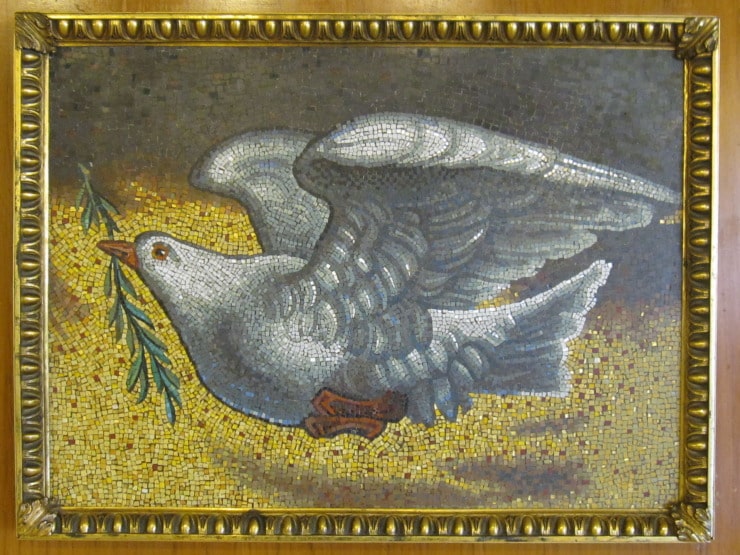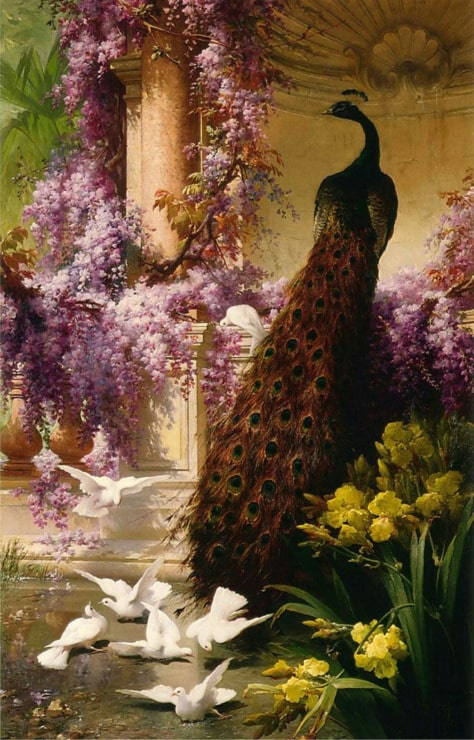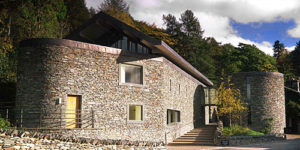< Return to all Wordsworth poems
The Eagle and the Dove
Shade of Caractacus, if spirits love
The cause they fought for in their earthly home
To see the Eagle ruffled by the Dove
May soothe thy memory of the chains of Rome.
These children claim thee for their sire; the breath
Of thy renown, from Cambrian mountains, fans
A flame within them that despises death
And glorifies the truant youth of Vannes.
With thy own scorn of tyrants they advance,
But truth divine has sanctified their rage,
A silver cross enchased with flowers of France
Their badge, attests the holy fight they wage.
The shrill defiance of the young crusade
Their veteran foes mock as an idle noise;
But unto Faith and Loyalty comes aid
From Heaven, gigantic force to beardless boys.
—William Wordsworth
Enjoy Artistic Representations of “The Eagle and the Dove” by William Wordsworth

More details Dove of Peace, presented by His Holiness Pope John Paul II, on the occasion of his visit to the United Nations, 2 October 1979. The mosaic is a copy of one that was executed in the Constantinian Basilica during the pontificate of Pope Innocent III (1198-1216).

A Peacock and Doves in a Garden by Eugène Bidau, 1888.
Listen to this Reading of “The Eagle and the Dove”
Listen to these Musical Interpretations of “The Eagle and the Dove” by William Wordsworth
About William Wordsworth
William Wordsworth, an English poet born in 1770, is credited with having a strong impact on the poetry of his time. He worked with Samuel Taylor Coleridge to publish a collection, Lyrical Ballads, which includes poems believed to be among the most influential in Western literature. With this publication, the two helped initiate English literature’s Romantic Age.

Jerwood Centre at the Wordsworth Trust in Grasmere
Wordsworth also worked to increase the accessibility of poetry, encouraging the use of more common language, and promoting the virtues of lyric poetry.
While in college, Wordsworth went on a walking tour of England and lived for a time in France, where he was greatly impacted by the French Revolution. His earliest work was published in 1793.
His most famous work, The Prelude, was published by his widow in 1850. He worked on the semi-autobiographical poem throughout much of his life, never quite satisfied to publish it.
Wordsworth served as England’s Poet Laureate from 1843 until he died in 1850.
That’s it for The Eagle and the Dove!